#Russian orthodoxy
Explore tagged Tumblr posts
Text

Russia ✨
#orthodox#orthodoxy#eastern orthodoxy#eastern orthodox#russian orthodoxy#christianity#orthodox christianity#eastern orthodox christian#russia#russian orthodox#russian churches
103 notes
·
View notes
Text


HI !!!! im sorry for the inactivity. im gonna start posting more on here, especially with tiktok shutting down in a few days.
#artists on tumblr#digital art#digital illustration#my art#my ocs#oc art#ocs#original character#original art#original charater art#character illustration#character art#ocart#character#orthodox#orthodoxy#church#russian orthodoxy#christianity#illustration#traditional drawing#traditional illustration#traditional art#traditional sketch#sketches#sketch#drawing#doodle#orthodox christianity#my art and toes
11 notes
·
View notes
Text
'Autocracy, Orthodoxy and Nationality' in 1905

St. John's Church in Voronki (built 1905)
"While they [conservatives within the ecclesiastical hierarchy] supported the general notion of self-government for the Church, they were not prepared to see the authority of the appointed bishops or the monastic clergy weakened in any way. Even less were they inclined to accept the argument put forward by the Prime Minister, Count Witte, on proposing the Law of Religious Toleration in 1905, that ending discrimination against the rivals of Orthodoxy would not harm the Church provided it embraced the reforms that would revive its own religious life.
The senior hierarchs of the Church might have flirted for a while with the heady ideas of self-government being bandied about by their liberal brethren, but Witte's insistence on making religious toleration the price of such autonomy (a policy motivated by the prospect of wooing important commercial groups in the Old Believer and Jewish communities) was guaranteed to drive them back into the arms of reaction.
After 1905 they allied themselves with the court and extreme Rightist organizations, such as the Union of the Russian People, in opposing all further attempts by the liberals to reform the Church and extend religious toleration. The old alliance of 'Autocracy, Orthodoxy and Nationality' was thus revived against the threat of a liberal moral order.
This clash of ideologies was one of the most decisive in shaping Russian history between 1905 and 1917."
A People's Tragedy: The Russian Revolution, 1891–1924, Orlando Figes
#Russian History#History#Russian Revolution#the russian revolution#Sergei Witte#Count Sergei Yulyevich Witte#Orthodoxy#Russian Orthodox#Russian Orthodoxy#orthodox christianity#orthodox church
16 notes
·
View notes
Text
Liudmila Knyazeva (Людмила Князева) - Русская классическая хоровая музыка 19-20 в. (Russian Classical Choral Music of the 19th-20th Centuries)
My friend, the Russian composer Liudmila Knyazeva, has composed an album of Eastern Orthodox choral music. It’s a wonderful venture with the vaunted hymns the Church is known for. This is an especially nice thing to hear as we as Orthodox prepare for the Marian Fast, as well as for my Saint’s Name Day (Ilija, or Elijah).
2 notes
·
View notes
Text
"The influence of Byzantium in the Orthodox world <…> was based precisely on the fact that it was for all the Orthodox peoples of the East the cultural center, from which came out science, education, the highest and most perfect forms of church and social life, etc. In this respect, Moscow was nothing like the old Byzantine Empire. Moscow did not know what science and scientific education were; it did not even have a school or people with a correct scientific education; its entire educational capital consisted of that, from the scientific point of view, not particularly rich and varied legacy, which at various times Russians either directly or indirectly received from the Greeks, without adding anything of their own to it. It is natural, therefore, that the primacy and supremacy of Moscow in the Orthodox world could only be purely external and very contingent."
Nikolay Kapterev, The Nature of Russia's Relationship with the Orthodox East, 1885
"Влияние Византии в православном мире <…> основывалось именно на том, что она была для всех православных народов востока культурным центром, откуда исходили к ним наука, образование, высшие и совершеннейшие формы церковной и общественной жизни и пр. Ничего похожего на старую Византию не представляла в этом отношении Москва. Она не знала, что такое наука и нау��ное образование, она даже совсем не имела у себя школы и лиц, получивших правильное научное образование; весь её образовательный капитал заключался в том, с научной точки зрения, не особенно богатом и разнообразном наследстве, которое в разное время русские посредственно или непосредственно получали от греков, не прибавив к нему с своей стороны почти ровно ничего. Естественно поэтому, что первенство и главенство Москвы в православном мире могло быть только чисто внешнее и очень условное."
Н.Ф Каптерев, Характер отношений России к православному Востоку, 1885
2 notes
·
View notes
Text

"Радоуисѧ,Невѣсто Неневѣстнаꙗ"
Icon of the Virgin Mary “Tenderness” (19th-20th century)
#Россия#Russia#Христианство#Christianity#Православие#Orthodoxy#Дева Мария#Virgin Mary#christian#Богоматерь#Mother of God#Our Lady#orthodox#christian faith#russian#icon#beauty#русская культура#russian culture#culture#religion#christian art#vintage#русское искусство#russian art#art#traditional#19th century#20th century
1K notes
·
View notes
Text
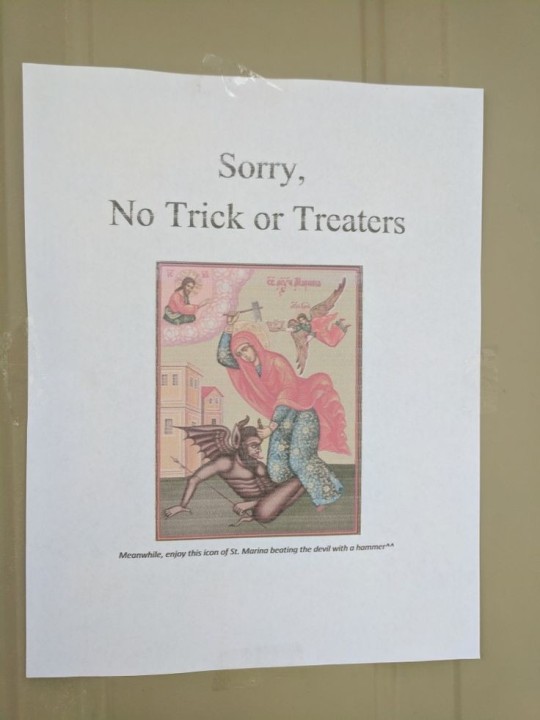
#orthodoxy#orthodox christianity#orthodox#christianity#eastern orthodoxy#orthodox church#eastern orthodox#orthodox christian#church#greek orthodox#russian orthodox#serbian orthodox#ethiopian orthodox
660 notes
·
View notes
Text

Midnight Office followed by Liturgy at 1 am
#orthodox christianity#greek orthodox#russian orthodox#orthodox#orthodoxy#eastern orthodoxy#chrsitianity#jesus christ#jesus#christ#theotokos#iconography#icons#liturgy
169 notes
·
View notes
Text






The Doukhobors Land - Natela Grigalashvili
"The Doukhobors are a small and closed Orthodox community that appeared in Russia three centuries ago, but was expelled to Georgia under Nicholas I. Their descendants have preserved their way of life and traditions and still live in the very remote region of Javakheti."
Source: https://dzen.ru/a/XlZR2WTD9TcKNlkw
102 notes
·
View notes
Text

190 notes
·
View notes
Text
The "Mantilla" is not Reverent, not Traditional, and not Catholic. It isn't Even a Veil.
The mantilla, a lacy, sometimes sparkly, transparent, half-circle or triangle-shaped garment, is often lauded as a traditional, reverent, catholic piece of church clothing, but it is none of the above. The mantilla is the long-lived fashion of the secular Spanish aristocracy, and until recently, was exclusive to those regions under Spanish influence and colonialism (absoloutly not universal or catholic). They were worn by women who didn't want to cover their pretty Catalan locks-- as good a reason as any to manipulate the traditions of the Church.
For a time, mantillas were even banned in the New World, and women wearing them would be denied communion. Why? Because the mantilla is not a veil. It's transparent-- in no way does it cover a woman's hair in the way Saint Paul described in Corinthians. He writes, "every woman who prays or prophesies with her head uncovered dishonors her head, for that is one and the same as if her head were shaved. For if a woman is not covered, let her also be shorn. But if it is shameful for a woman to be shorn or shaved, let her be covered." Women's heads and hair should be covered-- not adorned with glittering table coasters.

Fully ridiculous. Look me straight in the eyeballs and tell me this is what St. Paul had in mind when he told women to cover their heads. Be serious.
Though in Christianity, women do not veil out of any kind of modesty (or 'modesty'), the mantilla is immodest as it makes the practice of veiling into a fashion statement, which is what the mantilla always was since its very invention. It is not merely fashion (picking out a veil in a color that matches your outfit), but fashion meant to skirt the actual requirements of the church-- that is, a real, opaque veil that resembles something the historical church would've worn from the days of Pentecost to any time before the so-called Enlightenment. It would be better to wear no head covering of any kind or to simply braid your hair, than to engage in a practice of obstinate adornment. This is not my opinion as an Orthodox Christian (where proper veiling is more common but still not universal)-- it is the opinion of the historical Christian Church until about five seconds ago.
There is debate among Christians who study this teaching about whether Paul's words imply that the entirety of the hair (with the possible exception of bangs) should be covered, or if he means more specifically the head itself (allowing the length of the hair to hang out of the back of a veil). I do not feel strongly either way (in a theological sense) so long as the material is opaque and actually covers at least the area of the skull. That is the bare minimum of what Saint Paul writes.
Here are some examples of proper veils in a church environment:
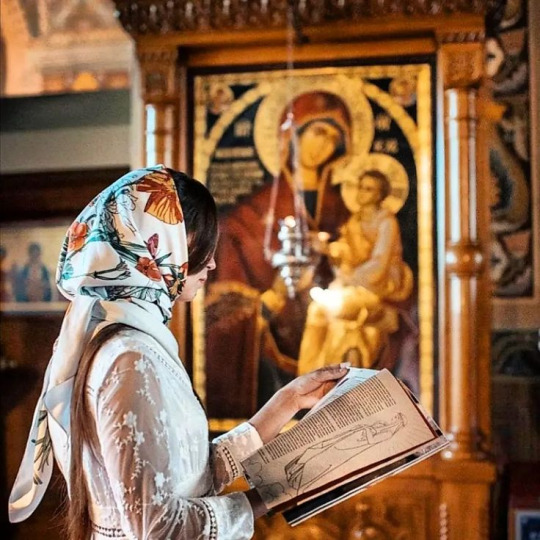
I find this very pretty, but all I can think about is the satin slipping for all of the Divine Liturgy. I always have to clip and pin and have it tightly fastened before the curve of my skull.

Probably do not bring the sheep into the Church building.

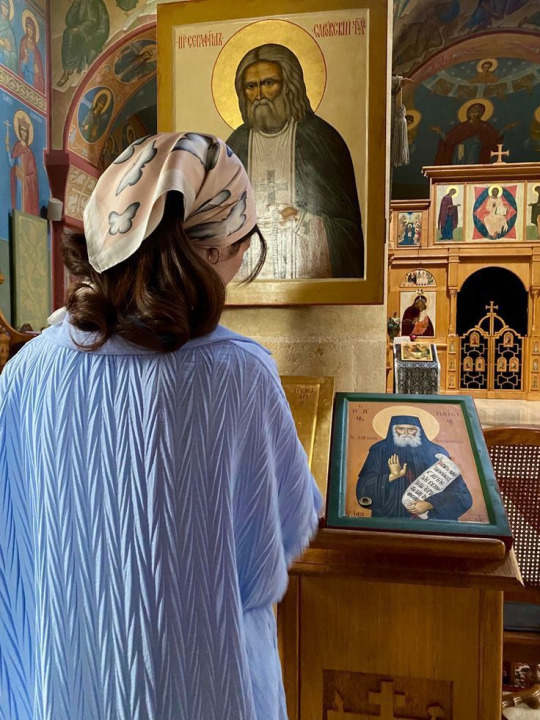



The infatuation with mantillas in the non-Spanish/Latin world began, as far as I can surmise, piecemeal in the late 1800s, picking up to an almost universal practice after Vatican II. This is to say, now, when Roman Catholic women veil, they almost always wear a mantilla. Before the 60s, European and white American RC women mostly wore hats as their form of head covering, which are their own issue, mostly related to fashion and insufficient coverage. Is a "pillbox hat" really a head covering Saint Paul would find acceptable? But at least they're opaque, right? Well, I should pick my battles.

I believe the reason the mantilla is particularly popular among young Roman Catholic women is due to the way RC influencers and 'gurus' talk about the purpose of veiling.
The actual purpose of veiling is to submit to the commands of God as recorded by Saint Paul. This following of a commandment allows you to be properly reverent and to be in communion with the historical practices of the church, past, present, and future. It's a simple reason, not very wild, controversial, or entertaining. That's the problem for RC lady influencers-- there are only so many ways you can quote the letters to the Corinthians.
So, these women feel the need to make up other reasons to veil, all of which range from tangential, to irrelevant, to heretical. Here are some doozies:
To Imitate Mary
Now, we do many things to imitate Mary-- notably, repeating her Magnificat. But Mary did not invent veiling. Veiling is a near-universal cultural practice, performed for many reasons. Of course, Mary rightfully and righteously participated in the veiling of Christianity, but she is not the reason why we veil (or ought to).

Notice how she covers herself?
2. To 'Express your Femininity'
Kill me now. Ok, it is fine and good if veiling makes you feel feminine or gets you more in touch with your femininity. That is a blessing. I know I never feel more beautiful than when I'm veiling, but this is not a reason we veil! Veiling is not about our internal feelings; it's about following a commandment.

Ohh yeah this is definitely Apostolic.
3. For Modesty
We've been over this one. Stop confusing Christianity with Muhammad's movement. Seriously, can we find a middle ground between imitating degenerate secular aristocracy and the false prophet's wives? At this point, I'm begging you.

4. To Show the Beauty of the Church
I am so sorry for you if you do not see the genuine beauty in the proper, traditional veiling of the Church. I don't know what else to tell you than that there is no tradition of the church that exists merely for your aesthetic entertainment. No statue carved nor icon writ, no paint spilled nor incense burned, no note sung, no vestment sewn has ever, ever been done merely because it is pretty. I understand the inclination to aesthetically prefer glittering lace that may dance in chapel light over a flat Pashmina or Pavlovsky Posad. However, I find it mind-boggling that this would seem a sufficient reason to abandon what the Scriptures actually demand. This is just as ridiculous as it would be to apostatize to Hinduism because you find their temples more visually appealing. You know what else is very sparkly and pretty? The Imam Ali Shrine in Iraq. Dazzling. But that does not make it part of the Christian Church. You must have the willpower and discernment to place what the Church demands above your personal fancies.
Women are so confused about veiling and the reasons why we must do it, is because veiling is no longer "simply what we do," as it has been both culturally and religiously until very recently. It is now, among RCs, an issue of controversy, somehow requiring justifications and auxiliary reasonings. It is not enough that Scripture demands it, the Church teaches it, and Her saints keep it-- there must be all these other reasons. This degradation of the veil began with things like the mantilla in Spain, the mesh bonnet and literal doyllie in Northern France and England, and other global innovations upon and rejections of the veil. We, as a Church, do not go from the wimple, to the mantilla, to a naked head over a few extremely progressive evenings. It was incremental, and participation in the mantilla only pushes us farther down the path of innovation.

If beauty is a real concern of yours, and no judgment if it is --the woman's heart years for beauty in a special and important way-- I think you'll find that the traditional veil allows just as much beauty and personal touch as the mantilla, if not much much more. Experimenting with veil styles is a small hobby of mine, and I feel accomplished when I can get the fabric to lay just right. My personal favorite is what I call the "cat ear" style, where there are two little peaks of fabric on the top of the head. Adorable.
Free yourself from mantilla mind slavery.
#veil#veiling#christian veiling#orthodox veiling#catholic veiling#christianity#orthodox#eastern orthodoxy#greek orthodox#orthodox christian#christian blog#russian orthodox#orthodox christianity#orthodoxy#catholic#mantilla#headcovering#head covering#head-covering#modesty#christian modesty#orthodox modesty#catholic modesty#catholicism#cathedral#roman catholic#catholic art#eastern catholic#modest girl#modest fashion
52 notes
·
View notes
Text
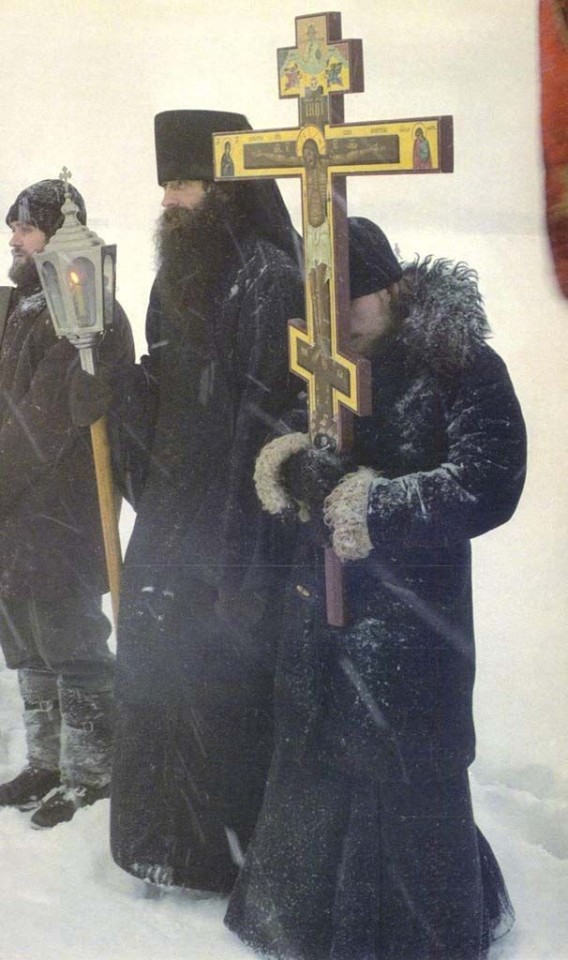
749 notes
·
View notes
Text
me n who fr
#balkan#relationship goals#balkanviolence#eastern europe#balkan violence#greek blog#greek tumblr#orthodox#orthodoxy#born to die#catholic#christianity#russian#slavic doll#eastern orthodoxy#eastern bloc#traditional femininity#tattoed men#lana del rey#me and who#me n who#me n him#put me in a movie#locally hated#couple#pinterest girl#eastern europe core#russian core#slavic core#girl core
113 notes
·
View notes
Text
The Moscow Fiasco
At the prodding of @quonunc, here is a quick overview of the incident I fondly referred to as "the Moscow fiasco" in a previous ask about the difference between Catholicism and Orthodoxy. It's a subject dear and horrifying to my heart after I wrote my undergrad dissertation on it.

In short: this is to do with how the Moscow Patriarchate (Russian Orthodox Church, hereafter ROC) is entirely in bed with the Russian government, and how Patriarch Kirill (of Moscow and All Russia) has been responding to the ongoing situation in Ukraine (and former Soviet lands more generally). Picture will make sense lower down the post.
The slightly longer short answer is that Patriarch Kirill is entirely in favour of the Ukraine war, and the ROC clergy are under significant pressure to support that as an official church stance-- my dissertation topic started to germinate when, completely by accident, I came across a 10-minute video of a ROC priest explaining very slowly and carefully that when he met the Pope, he did not talk about Ukraine. Will link this video if I can find it again, but at present it's proving elusive. (EDIT: found it!!! It was the Metropolitan Hilarion of Budapest and Hungary. This video looks like a hostage video honestly £10 says there's someone behind the camera holding a gun to this man's head for legal reasons this is a joke).
The foundation for this belief is obviously completely political (and the history of how the ROC and Russian state are completely entwined is long and complicated to say the least!), but officially the ROC stance is that it's about reclaiming the historic Slavic spiritual unity founded on the Baptism of Rus' in the year 988 by Vladimir the Grand Prince of Kievan Rus' when Slavdom become Orthodox. Proponents of this "Russian World" theory (Russkiy Mir') basically argue that it's the influence of the West that has fractured the unified Slavic people into different, opposing nations, and that by "liberating" Ukraine of this alien ideology of nationhood, the Slavic Orthodox world will regain its historic unity under the common banner of Orthodoxy. All I will say on this is that these people have a very rosy view of Kievan Rus', but that's a post for another day.
This has obviously caused friction within the Orthodox world. Ukraine now has two Orthodox churches-- the Orthodox Church of Ukraine, which is in communion with the Ecumenical Patriarch in Constantinople, and the Ukrainian Orthodox Church, which is in communion with the Russian Patriarchate. They are not in communion with each other, and Constantinople's decision to grant autocephalous status to the OCoU caused Moscow to schism with Constantinople. Constantinople is also accusing Moscow of heresy (specifically, ethno-phyletism). Moscow obviously denies this. Obvious question for the Catholics among us-- does this mean Russian Orthodox christians are no longer Orthodox? No, because schisms between Orthodox churches are not particularly unusual, and they remain within the general cloud of Orthodox communion links.

The whole mess is then immortalised in the absolute monstrosity that is the Main Cathedral to the Russian Armed Forces, which is what I wrote my diss on. The YouTube video linked there is promotional material from Russian military-themed TV channel Звезда, and is one of the better sources of info on it-- a lot of English-language sources contain a lot of incorrect information on it-- either because they don't understand the cultural background, or just straight up lies from the Russian govt propaganda arm--, so take anything they say with a grain of salt. Kirill then gives televised sermons from this cathedral in which he talks about the glorious Russian martyrs of the Ukraine invasion, does his best to harmonise Stalinism and Orthodoxy, and oversees military parades for national holidays. This cathedral has a huge amount of weird symbolism and imagery, and I am super happy to talk more about the mosaics and propaganda going on there, because it's a lot (to say the quiet part out loud: pLEASE ask me more about this cathedral because the more I think about it the more scream-worthy facts about it I remember).
You may have seen memes with this picture of the Virgin Mary (below). Yeah that's from this cathedral. And it's a really really fucked up image. Like, more fucked up than you may think. Could have written my entire diss on this image alone and how shockingly awful it is. western orthobro converts who keep reblogging it as if it's somehow cool and macho are just showing how little they know and it's embarrassing.

The militarism of the ROC since this whole thing has also gone bonkers and there's a huuuuuge amount of corruption and weird stuff going on. The tension between the clergy and the laity has been extremely high for decades, and has spilled over most notably in Pussy Riot's Punk Prayer stunt, an exhibition called Осторожно, религия! (beware, religion!), and some shenanigans in church-building more generally. On this particular incident I would point to the blessing of nuclear weapons and the canonisation of a patron saint of long-range nuclear missiles as key moments. The cathedral also has matching mosaics of Putin and Stalin, a fact that the Russian government very much wants you to think never happened (officially the mosaics were removed, but they absolutely were not-- muggins here found them and has the pictures to prove it).
The main takeaway from this topic is that situation is obviously complicated and the repercussions for everyone involved-- particularly Russian and Ukrainian laypeople-- are unpleasant to say the least. It gives something of a window into the Putin regime and its propaganda arm (Epiphany swim, topless horseriding pictures, Soviet-style policies, I could go on) more than anything else, because the situation inside the ROC is still quite obscure. From talking to people who know Kirill personally, it's not clear quite what he thinks is going on or why he's involved the way he is. Either way. Fiasco.
#russian orthodox#patriarch kirill#main cathedral to the russian armed forces#christianity#askjhn#idk what else to tag bc honestly who even is reading this#certainly not russians#they're not allowed on the internet anymore#orthodox#orthodoxy
67 notes
·
View notes
Text

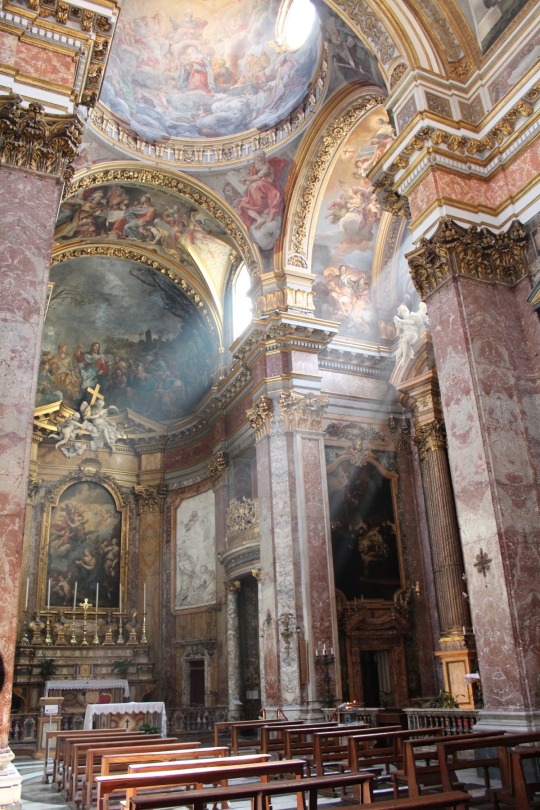
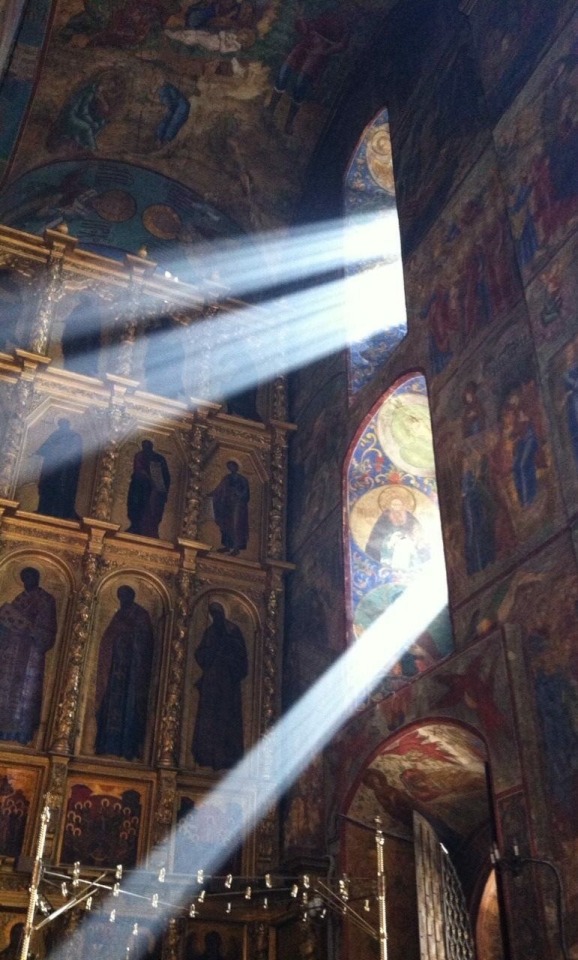
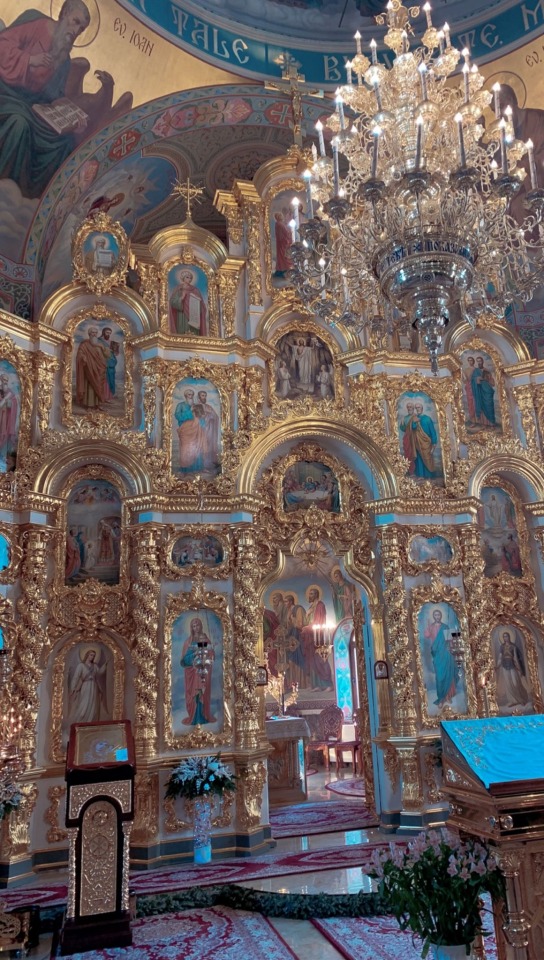
Orthodox churches ☦︎
#orthodox christianity#eastern orthodoxy#orthodox church#russian orthodox#greek orthodox#orthodox icon#cathedral#monastery#catholic#catholiscism
219 notes
·
View notes
